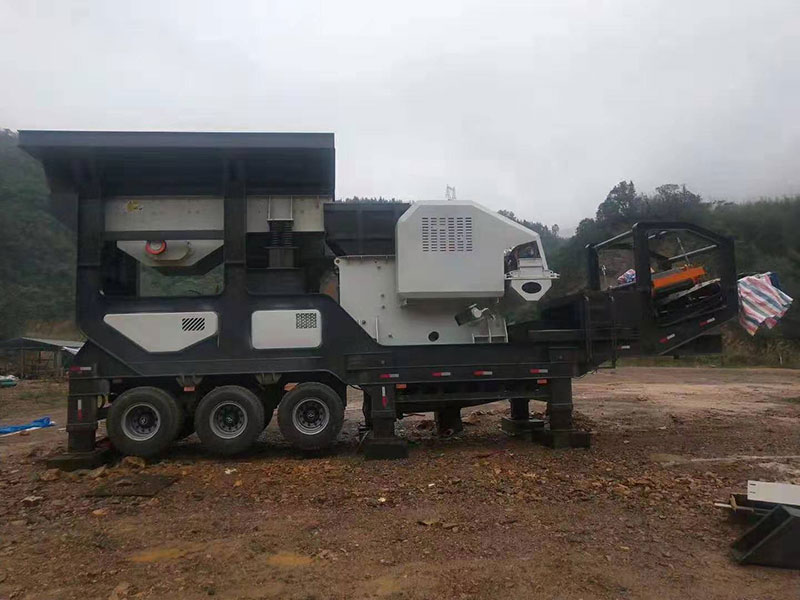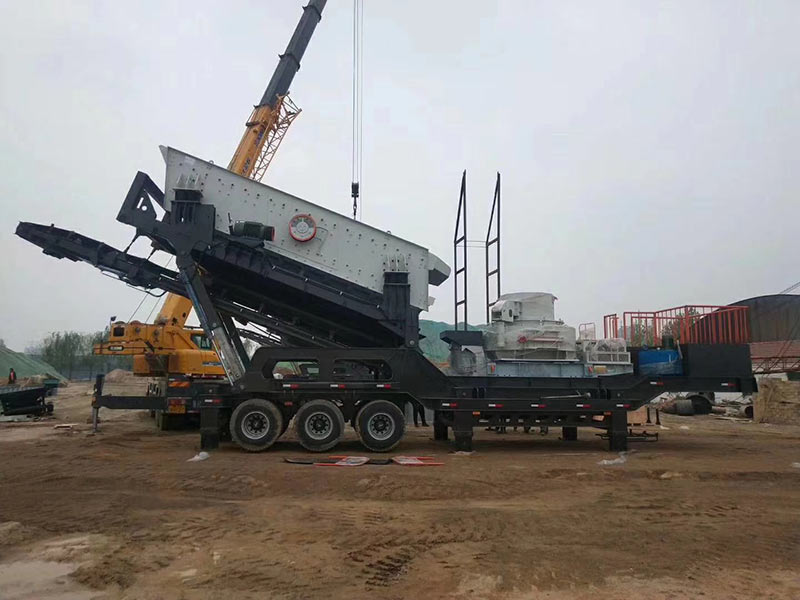Modern mobile stone crushers have become essential in the construction and mining industries due to their ability to efficiently crush large volumes of material at various job sites. One of the most significant advancements in these machines is their increasing level of automation. In this article, we will explore the extent to which mobile stone crusher plants, as well as other stone crusher plants, have become automated, and how these innovations improve efficiency and safety on the job site.
The Rise of Automation in Mobile Stone Crusher Plants
The need for higher efficiency, reduced labor costs, and improved precision has driven the adoption of automation in mobile stone crushers. Mobile stone crusher plants(planta chancadora movil) are designed for easy transportation, but the addition of automation has significantly enhanced their capabilities. Automation in these machines focuses on control systems, data collection, and automated functions for a smoother operation.
1. Automated Feeding Systems
One of the key advancements in mobile stone crusher plants is the implementation of automated feeding systems. These systems regulate the amount and flow of material entering the crusher, ensuring optimal efficiency. By automatically adjusting the feed rate, the system prevents overloading or underfeeding, which can reduce wear on the equipment and enhance the overall crushing process.
2. Intelligent Control Systems
Modern mobile stone crushers come equipped with intelligent control systems that help operators monitor and manage various aspects of the machine’s operation. These control systems often include touchscreen interfaces, remote monitoring, and real-time diagnostics. These automated features allow for quick adjustments and troubleshooting without needing to be physically present at the machine, reducing downtime and increasing productivity.

Automation in Stone Crusher Plants
While mobile stone crusher plants are at the forefront of automation, stationary stone crusher plants are also benefiting from similar advancements. These plants rely heavily on automation to manage the processing of raw materials, reduce labor costs, and improve product consistency.
1. Automated Crushers and Screens
Stone crusher plants(planta chancadora de piedra) are increasingly adopting automated crushers and screens. These machines have sensors and automated systems that adjust the settings based on material properties and desired output sizes. For example, crushers may automatically adjust their gap settings to accommodate different material hardness or change their operation based on the size of the material being processed.
2. Monitoring and Reporting Systems
Many modern stone crusher plants use advanced monitoring systems that track the performance of key components, such as crushers, screens, and conveyors. These systems provide real-time data, allowing operators to monitor equipment health, production rates, and material flow. The information gathered can be analyzed to predict maintenance needs, further reducing the risk of unplanned downtime and extending the lifespan of the equipment.
Automation in Aggregate Crusher Plants
Aggregate crusher plants, which are specifically designed for processing large volumes of aggregate material, have also seen significant automation improvements. As these plants are integral to large-scale construction projects, automation is key to optimizing production rates and ensuring high-quality aggregate products.
1. Automated Aggregate Sorting and Grading
In aggregate crusher plants, automation is used to sort and grade the materials according to their size and quality. Advanced sorting systems use sensors and conveyors to automatically sort the aggregates as they exit the crusher. These systems can also segregate different types of aggregates based on size, ensuring uniformity in the final product and reducing the need for manual sorting.
2. Enhanced Production Scheduling
Modern aggregate crusher plants(planta chancadora de aridos) use automated production scheduling systems that help optimize the flow of materials. These systems automatically adjust production rates, operating hours, and material stockpiles to meet demand. By predicting future production needs, automated scheduling helps ensure that resources are used efficiently and production targets are met.
Advantages of Automation in Stone Crushers
The integration of automation into mobile stone crushers and stationary stone crusher plants has numerous advantages that improve both the efficiency and safety of operations. Below are some key benefits of automation in modern stone crushing systems.
1. Increased Efficiency
Automation increases the overall efficiency of mobile and stationary stone crusher plants. Automated systems can continuously adjust operations in real time to maintain the best crushing conditions, minimizing downtime and maximizing output. This also allows for better resource management and optimized processing of materials, reducing waste and improving the quality of the final product.
2. Reduced Labor Costs
Automation reduces the need for manual intervention in many aspects of stone crushing operations. With automated systems in place, operators spend less time on tasks like adjusting settings, sorting materials, or troubleshooting issues. This lowers labor costs and allows workers to focus on higher-level tasks, such as overseeing the entire plant operation.
3. Improved Safety
Automated systems help improve safety on the job site. By minimizing the need for human operators to be in close proximity to crushing equipment, automation reduces the risk of injury. Remote monitoring and control systems allow operators to adjust settings and diagnose issues from a safe distance, further reducing the likelihood of accidents and increasing overall safety on the site.

The Future of Automation in Stone Crushers
As technology continues to advance, we can expect even more automation in mobile stone crusher plants and aggregate crusher plants. The future of stone crushers(chancadora de piedra) will likely include further improvements in artificial intelligence (AI), machine learning, and remote control capabilities. These advancements could lead to even greater levels of efficiency, precision, and safety in stone crushing operations.
1. Autonomous Crushing Systems
In the future, we may see fully autonomous mobile and stationary stone crusher plants, where the entire crushing process is carried out without human intervention. These plants would be able to operate independently, making real-time adjustments based on the material being processed and monitoring the health of all equipment, ensuring a continuous and optimized production flow.
2. Integration with IoT and Smart Technologies
Internet of Things (IoT) technologies will likely play a significant role in the future of automation in stone crushers. By integrating sensors and smart devices into the plant, operators can collect vast amounts of data and make data-driven decisions in real time. This could lead to even more efficient and predictive maintenance, further reducing downtime and increasing productivity.
Conclusion
Automation has revolutionized the way mobile stone crusher plants and other stone crushing equipment operate. From automated feeding systems to intelligent control systems and advanced monitoring, automation has made stone crushers more efficient, cost-effective, and safe. As technology continues to advance, we can expect even more automated features, leading to fully autonomous crushing systems that will redefine the industry and improve the future of construction and mining operations.

